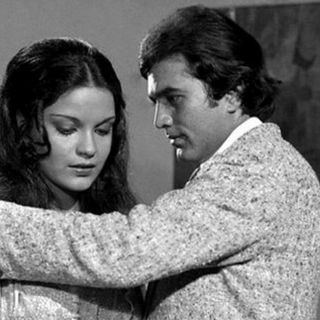In It’s Okay, we defend our most embarrassing, unpopular opinions.
From family friends and relatives, to people on dating apps and internet friends, everyone seems to earnestly ask: “what you like to do with your free time?” Do you dance or play the ukulele? Are you a connoisseur of Dalgona coffees or banana bread; perhaps an amateur artist, even?
Saying you have no hobby at all — the mere lack of association with a special interest — makes one seem dull at best, and incompetent at worst. But what is it about having niche interests that make someone a more advanced, successful human? It’s reasonable to want to do multiple things with no particular commitment to any one; or even do nothing at all, other than doomscroll and binge-watch the same show for the sixth time.
It’s okay to not have that one hobby you thoroughly enjoy or that one skill you’re going to master.
Hobby, by definition, is something that people enjoy away from the humdrum of work-life; the fundamental idea is that it allows for a “certain amount of rest and recreation,” the American Psychological Association notes. But somewhere between the intent and reality, hobbies tend to dilute the concept of leisure time.
Related on The Swaddle:
The Fursat Series Documents Women’s Small Moments of Resistance Via Leisure
“Many hobbies have morphed into the dreaded side hustle or as paths to career development, turning the things we ostensibly do for fun into … more work,” Jaya Saxena writes in the New York Times. Brigid Schulte, author of Overwhelmed: Work, Love and Play When No One Has the Time, while researching her book found how many thought hobbies to be keys to productivity — rather than activities meant to derive pleasure. An achievement-oriented culture makes it hard to let passion exist in silos and ends up conflating it with “value.”
Hobbies demand something tangible from their undertakers — perhaps an ardent interest in sports; a collection of stamps; knitting or cross-stitching; ceramics; new languages; or even watercolors. But one, the fear of failure makes it hard to move the needle, until you lose interest. When bogged down with routines, targets, and unrealistic notions of productivity, hobbies add the pressure of showing results — making them no longer fun.
The stress of finding a hobby is linked to anxiety and even depression, as people struggle to find “meaning” and “purpose.” The presumption that someone is boring if they don’t have an “interest” to embellish, or define, their personalities also feeds into this cycle of insecurity.
This pressure to have a niche interest and balance work and family is more pointed during a pandemic, with people feeling like there is something wrong with them if they don’t pick something to capitalize upon their time in quarantine.
By the end, the interest ends up becoming something you do for someone else — not yourself. “A hobby should tell a lot about you. How you choose to spend your free time is one of the most intimate, revealing characteristics about your general being,” Dan Scotti writes for Elite Daily. But often the chase is to be the best or get the maximum number of likes and comments; and the ultimate purpose to earn society’s appreciation and validation, rather than earnestly respond to one’s interests.
“I think it’s hard for everybody to fit new things into their lives, because it’s a zero-sum game, where in order to create time for a new activity, you have to take that time away from doing something else,” David Conroy, a professor of kinesiology and human development at Pennsylvania State University in the U.S., told The Cut.
Sometimes the pressure needs to come off. The joys of a hobby-less life are plenty: there is freedom to shuffle between varied interests without the burden of continuing it or even proving yourself; there is no activity or to-do list at the back of your mind on your free days — free time could exist without the pressure to be filled with something; your interests can be as creative, unheard, and novel as you like. From jumping through subreddits, tie-dying to watching a bizarre cat video, free and fun could be anything.
So, the next time someone asks you what you like to do for fun, be fearless with the truth — it’s okay, you’re just not ready to commit yet.




